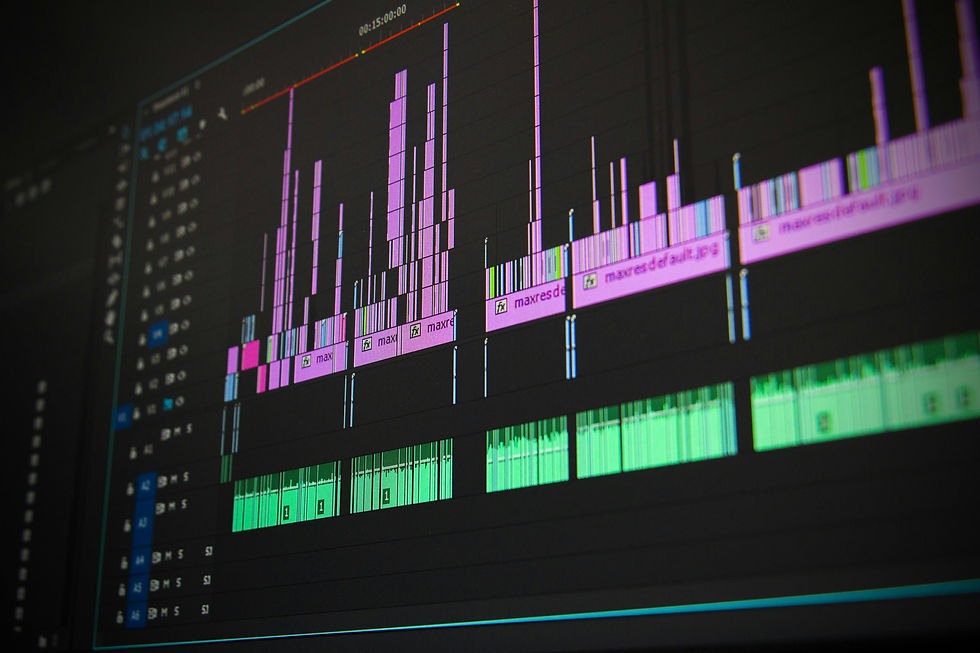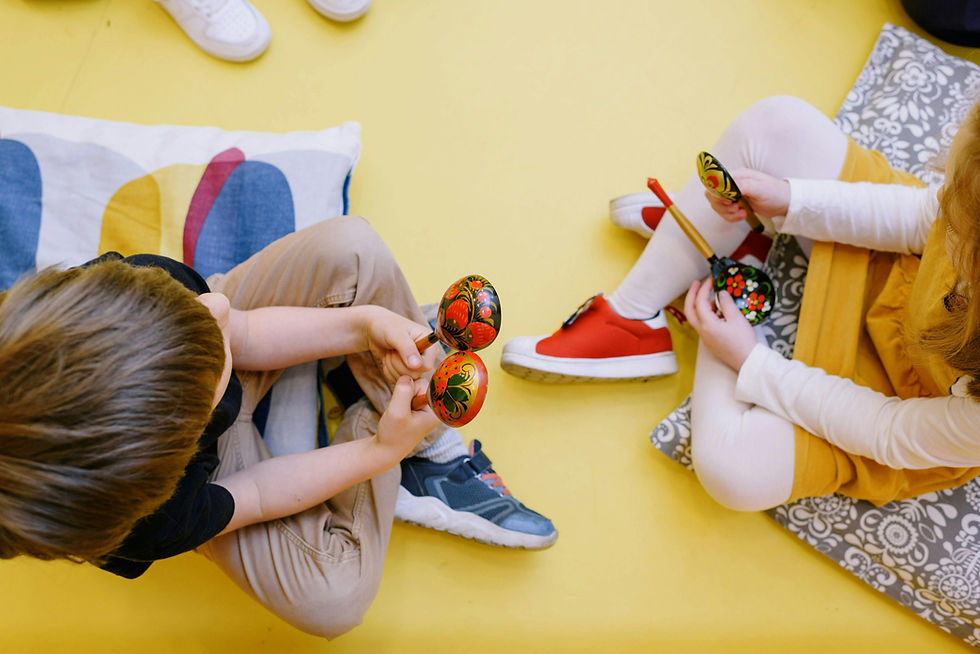Why Music Matters in a Tech-Filled World
- Brittany Bennett
- Sep 9
- 4 min read

In a world where screens dominate our attention, notifications pull us in every direction, and instant gratification is just a tap away, the value of music can sometimes feel overshadowed. But if you pause and listen closely, music is still doing what it has always done: connecting us, calming us, challenging us, and shaping who we are.
Especially for kids growing up surrounded by devices and algorithms, music is more than just a fun activity. It becomes a powerful antidote to overstimulation and a pathway to creativity, focus, and emotional depth. At NoteWise Music Academy, we believe that learning music is not only still relevant in this tech-filled world—it's essential.
Music Builds Human Connection
Technology can connect us across the globe, but it often leaves us feeling isolated. Music, on the other hand, creates community in real time. Whether it’s a jam session between friends, singing in a school concert, or playing in a homeschool orchestra, music encourages collaboration, empathy, and shared expression.
Even in one-on-one lessons, music nurtures relationships. A music teacher doesn’t just teach notes and rhythms—they listen, encourage, and guide. These moments of mentorship provide emotional support that apps and AI can’t replicate.
Music Supports Brain Development
While tech tools focus on speed and convenience, music develops patience and deep focus. Learning an instrument requires attention to detail, coordination, and memory. Studies show that music training improves cognitive skills like:
Language development
Math performance
Reading comprehension
Working memory and attention span
Instead of passively consuming content, music teaches kids to be active participants in their learning. It gives the brain a workout in ways screens can’t.
Music Boosts Emotional Intelligence
So much of our digital world is built for reaction, not reflection. Music slows us down. It invites us to feel, to express, and to sit with emotions.
Children who learn music are often more emotionally aware. They begin to recognize how certain sounds evoke certain feelings. They learn to express joy, sadness, frustration, or excitement without needing words. This is a powerful tool, especially for kids who struggle to process emotions in a fast-paced, overstimulating environment.
Music Offers a Break from the Noise
Let’s face it: kids (and adults!) are bombarded by stimuli all day long. Between YouTube videos, social media, games, and homework, there’s very little room for stillness. Music lessons offer that break.
Whether it’s practicing piano in a quiet room, strumming a guitar on the porch, or simply closing your eyes and humming, music becomes a refuge. A moment to breathe, focus, and feel present. In many ways, music is mindfulness in motion.
Music Encourages Creativity and Problem Solving
Technology teaches us how to follow instructions. Music teaches us how to explore.
When students learn to improvise, compose, or interpret a piece in their own way, they build creative thinking skills that go far beyond music. They learn how to:
Make decisions
Take risks
Reflect on their choices
Solve problems when things don’t go as planned
These are the same skills needed for leadership, entrepreneurship, and innovation—skills that no algorithm can replace.
Music Helps Balance Screen Time
Families everywhere are asking the same question: how do we create a healthier balance with screens? The answer isn’t just taking tech away. It’s giving kids something meaningful to replace that time.
Music lessons offer a structured, enjoyable activity that builds discipline and routine. Instead of zoning out with passive entertainment, kids can zone in with an instrument in their hands. The reward? A sense of achievement, confidence, and progress they can feel and hear.
Music Creates Lifelong Joy
Many tech trends come and go, but the joy of playing music lasts a lifetime. Kids who learn to play early often carry that love into adulthood, whether through performing, songwriting, or simply playing for fun.
Music becomes a lifelong companion—something they can turn to during stressful seasons, celebrations, or moments of solitude. It grows with them, adapts to their emotions, and gives them a way to process the world around them.
The NoteWise Approach
At NoteWise Music Academy, we understand the world kids are growing up in. That’s why our teaching approach isn’t about pressure or perfection. It’s about connection, curiosity, and confidence.
We offer private and group lessons, flexible scheduling, and a warm, supportive environment where students are encouraged to explore and enjoy music. Whether your child is new to music or already on their journey, we meet them where they are and help them grow at their own pace.
Our programs are designed to complement, not compete with, today’s digital landscape. We teach kids how to unplug, tune in, and rediscover the joy of making something beautiful with their own two hands.
Final Thoughts
In a tech-filled world, music gives us something tech can’t: presence, patience, and purpose. It helps kids connect with others, express themselves, and build skills that last far beyond childhood.
So while the world keeps spinning faster, music gives us a reason to pause. To listen. To feel. And to grow.
Want to bring more music into your child's life? Reach out to us at NoteWise Music Academy and let's get started on a journey that hits all the right notes.
Ready to unplug and play? Visit notewisemusic.com or call 214-301-3190 to enroll today.





Comments